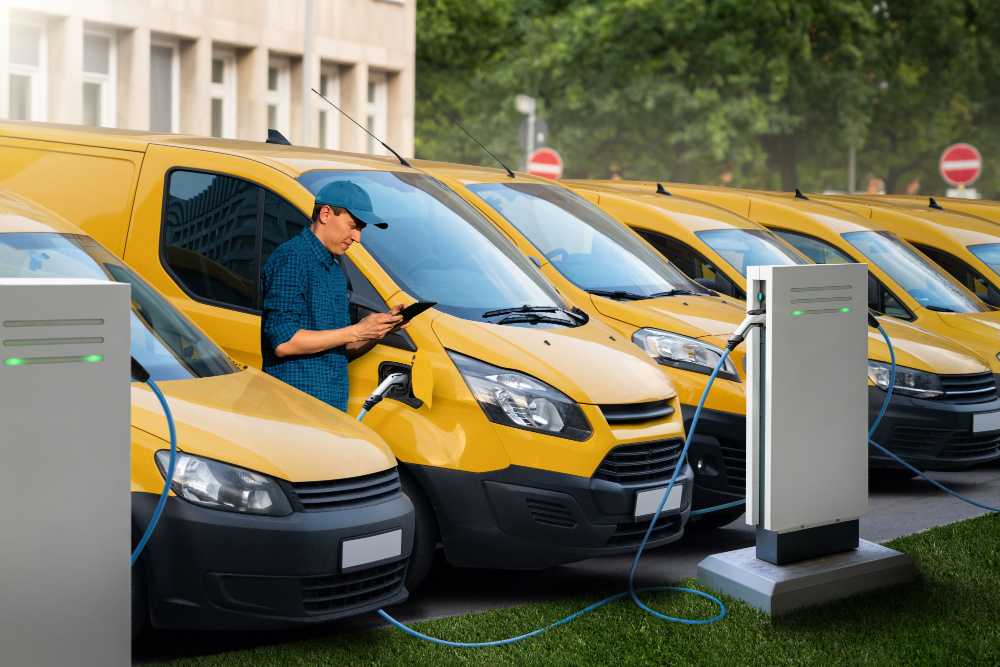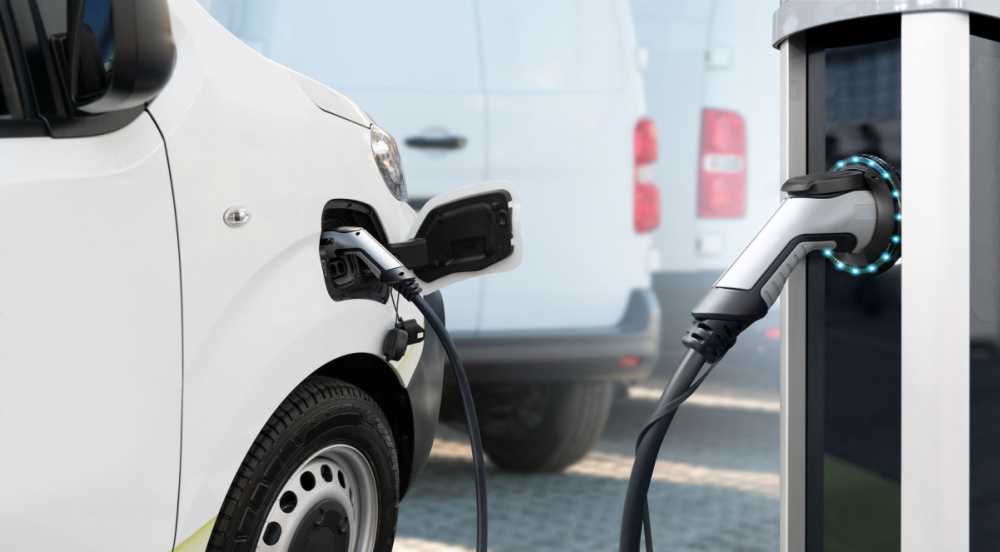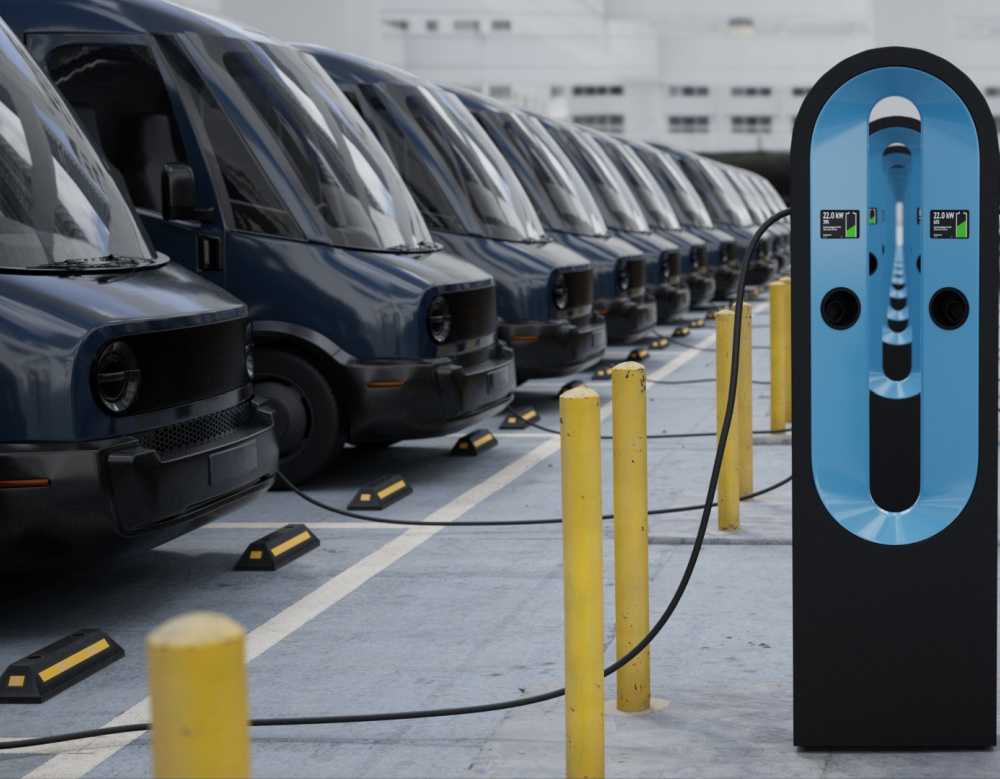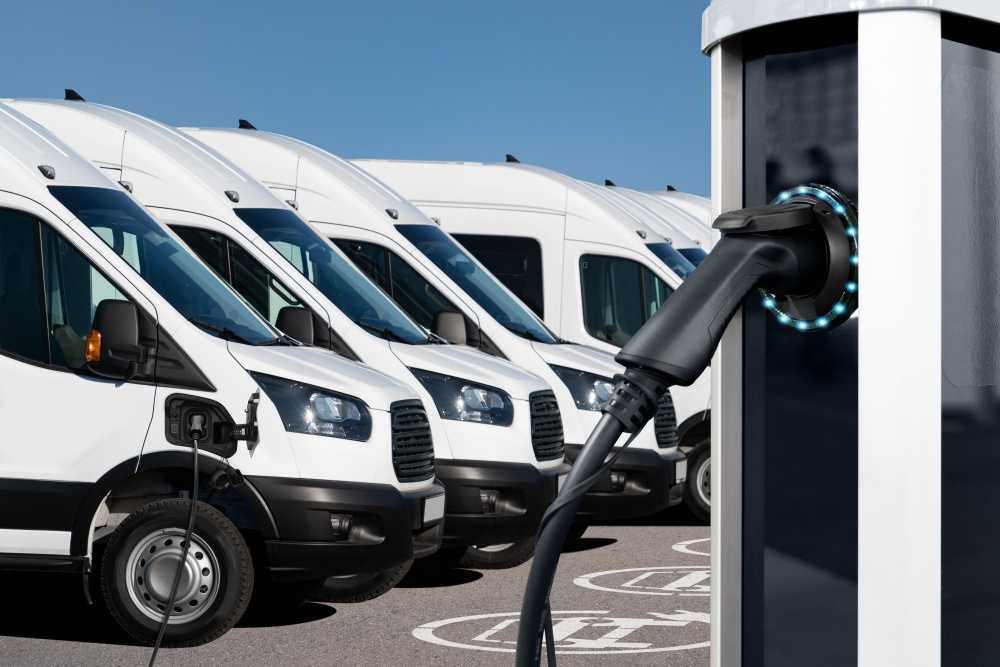Electric Van Insurance
Get a quote for electric van insurance to help protect your eco-friendly ride:
Electric vans are becoming increasingly popular in the UK thanks to a growing desire among businesses and individuals to take proactive steps to help reduce the impact on the environment by lowering their carbon emissions.
The choice of electric vans is increasing rapidly with most major manufacturers now offering fully electric models within their van ranges and, as battery technology advances, the key stumbling point for many business owners, i.e. the range an electric van can achieve from a single full charge, is starting to become less of a barrier to making the switch to electric.
The purchase cost of electric vans remains relatively high versus traditional internal combustion engine vans, but many insurers will now offer competitive electric van insurance policies.
Of course, the cost of electric van insurance will vary from driver to driver, and insurance companies take a number of factors into consideration when calculating your quotation.
Factors that may affect the cost of electric van insurance include:
- The value of the van
- The van's annual mileage
- The driver's age and experience
- The location at which the van will be kept overnight
- What the van will be used for
- The level of insurance cover required
See how much you can save
Compare electric van insurance quotes today!
Tips for getting the best rates on electric van insurance
Looking to take out insurance for your electric van at some of the best prices? Thankfully there are a number of ways which may help you get the most competitive quotation for your particular circumstances. One of the easiest ways is to compare electric van insurance.
Shopping around and comparing van insurance quotes is arguably the best way to ensure that you get a good deal.
At The Van Insurer, we can compare quotes from over 40 insurers in order to bring you great insurance offers for your electric van. Other ways to help get cheaper quotes on electric van insurance include:
-
Consider a higher voluntary excess
-
Build up your no-claims bonus
-
Enhance your van's security
-
Choose lower annual mileage if possible.
How much does it cost to run an electric van?
The overall cost of running an electric van can vary and depends on a number of factors. This includes the amount and cost of the electricity required to charge the batteries, the vehicle type, the distances covered and how hard the vehicle is worked (for example is it regularly full of heavy items or mostly driven empty).
While it is difficult to calculate the overall cost of maintaining an electric van, you can get a good idea of the cost of charging a battery back to full capacity with a few simple calculations.

As of April 2023, the on-peak cost of electricity per kWh stands at 40.9 pence[1]. We will use this figure to calculate the cost of a full recharge. (However, this is assuming your local electric vehicle charging point uses these rates: prices may be higher or lower, depending on your location and fluctuating energy tariffs.)
Next is calculating your weekly mileage. According to a poll conducted by Nissan in 2021, drivers of electric vehicles reported an annual mileage of over 8800 miles[2], so we'll use this figure as our annual mileage example.
Now, you should divide your yearly mileage by the number of weeks in a year: 52. The calculation 8800 ÷ 52 leaves you with the figure 169.2, which we will round down to 169 miles per week.
The final step requires you to know how many kWh of energy your electric van battery can hold in a single charge.
Research by Statista poses that the average electric vehicle has a battery capacity of 40kWh[3], so you will need to multiply this number by the cost of electricity per kWh, 40.9 pence.
This will leave you with the following calculation: 40kWh x 0.409 = £16.36.
In our example scenario, charging your van's electric battery back from empty to full capacity costs about £16.36. Follow these steps using your weekly mileage and charging point costs for a more accurate estimation, but remember it's only an approximation and real world usage might cost more, or less.
See how much you can save
Compare electric van insurance quotes today!

What is the cost of maintaining and servicing an electric van?
On average, service and maintenance costs for electric vehicles are generally cheaper to maintain than their petrol or diesel equivalents[4].
This is because electric vans have fewer parts that can easily break and are usually made with a simple design and process that lends itself to cheaper and hopefully budget-friendly maintenance and servicing costs!
What does electric van insurance cover?
The level of electric van insurance coverage you'll receive for your electric van will depend on the type of insurance policy you choose. The types of cover offered to electric vans in the UK are:
Third-party only (TPO)
TPO is the minimum legal requirement of insurance you must hold for your vehicle in the United Kingdom.
It provides cover for damage or injury to another person or their property if you cause an accident. However, you and your van will not be covered, and you cannot claim with your insurance. A third-party-only policy does not cover damage caused by theft or fire.
Third-party, fire and theft (TPFT)
In addition to Third-party only cover, a TPFT policy will also cover you if your electric van is stolen or damaged by fire.
Comprehensive
Comprehensive insurance policies provide everything included under Third-party fire and theft and will also cover you if your electric van is damaged or destroyed in an accident.
Some insurers may offer power cable and battery cover for your electric van. If you'd like this to be included in your policy, speak to the insurer and make sure it's included before buying your policy.
If it's not included as standard, the insurer may be able to offer it as an ad-on.
How does cover for an electric van differ from a cover for a standard van?
Cover for an electric van can differ from standard van cover in a number of ways. For example, some insurers may cover battery or cable replacements for electric vehicles which may increase the price of their quotations. The same can be said for electric vehicle replacements, which can cost more when compared to a standard van. However, the price when you compare electric van insurance quotations could be minimised thanks to lower maintenance and servicing costs. Overall, the prices of cover for both electric vans and standard, internal combustion engine vans will vary depending on a number of factors and circumstances.

See how much you can save
Compare electric van insurance quotes today!
Electric Van Fleet
Should I switch to a fully electric van fleet for my business?
Considering making the switch from traditional internal combustion engine vans to electric vans? There are both pros and cons to making the switch, such as the initial cost of buying electric vans which tend to be more expensive, the distances your drivers undertake in a year, the cost of maintenance and the price of insurance.
Pros and Cons of Electric Vans
Pros
-
Reduces or eliminates carbon emissions from your business fleet
-
Potentially cheaper to maintain and service electric vans
-
Lower operating costs depending on the price of electricity and type of van usage
-
Smoother to drive
Cons
-
Insurance cover can be expensive depending on the mileage your drivers rack up
-
Not all fleet drivers have easy access to charging ports
-
The more weight in the vehicle, the less the van can travel efficiently on one charge

What is the typical range of electric vans on a single charge?
Generally, electric vans travel around 3-4 miles per kWh[5].
However, figures from the Electric Vehicle Database[6] show the average range an electric van can travel between 100-200 miles on a single charge, depending on the van's make and model.
How does the weather affect my range?
Much like standard vehicles, electric vans can be impacted by the weather. In colder temperatures, batteries in electric vans can struggle to keep their charge, which unfortunately can lead to reduced range. However, in warmer weather, you may find that your electric van works at a better capacity thanks to heat keeping your charge intact.
See how much you can save
Compare electric van insurance quotes today!
